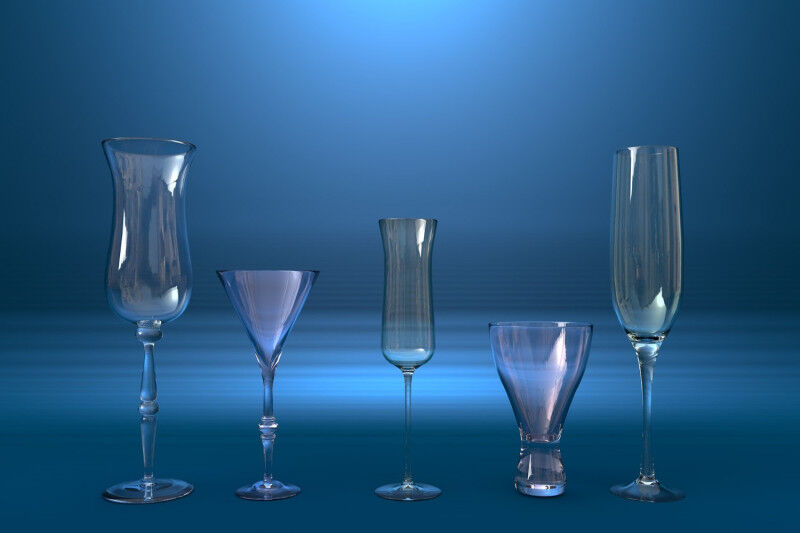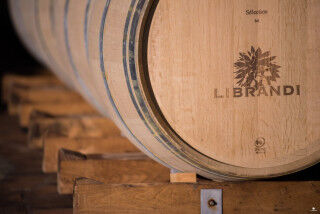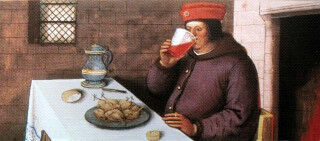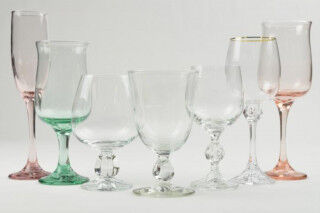Why are wine glasses so important when drinking wine? Wouldn't any tumbler or stemmed glass work? What if I only have universal glasses, will those do? What should I be on the lookout for when shopping for new stemware? So many questions, readers, so little time.
Just kidding - I've got the time, if you've got the thirst for learning why your classic wine glasses might not be making the most of your wines. Of course I'm not entirely suggesting that you snap up a whole new set of wine glasses (it’s certainly not for those with space issues, and who can say they love making sure their crystal is spotless all the time), but you might want to maximize what you already have, or invest in maybe just a few new ones.
At the very least, check them out and begin thinking about indulging in your new ones down the road. Being informed is the first step towards making the most out of your wines and being absolutely sure nothing is lost on the way.
Why do glasses matter? That's an excellent starting question, and I'm so glad you asked! Stemware is important in terms of actual glass quality, size, shape, and more. The honest answer to this fundamental question is that glassware can affect the way your wines taste, and the same wines can taste different (amazingly enough) if poured in different stemware. Insane, but true (I've tested it out myself). The logic behind this is that aromas are released and developed based on the amount of oxidation the wine experiences, so how much the wine comes into contact with the air hitting its surface, in a nutshell.
There's a lot of debate about the shape of the wineglass as well, perhaps most of the debate actually comes out of this concern. I know that a glass's shape will allow for different variables to develop, but how will that affect the actual taste? The debate here is whether or not the glass delivers wine to certain parts of our tongue, and whether or not our tongues have taste receptors in specific locations.
And does the oral part of tasting matter as much as the smell-to-taste factor? It's worth noting that sensorial taste isn't just oral, it's also scent-based. Not just scent based, but also after-taste and after-scent based as well. You can see why this is a touchy question with lots of different ideas.
A classic map of the human tongue shows taste receptors clearly divided into parts: bitter in the back, sour on the back sides, salty on the front sides, sweet in the front and umami all over. The problem with this map is that it was proven to be a bunk theory! A question of mistranslation, the map was a legitimate research paper written by a German scientist dating back to the early 1900s - it has long since been proven incorrect, as we actually are capable of tasting many more than just these simple flavor breakdowns.
More importantly, taste receptors are present all over our tongues, so in the event you burn the crap off of your tongue because your soup is too hot, rest assured you'll still be able to enjoy flavors and sensations thanks to different spots all over your tongue.
Most importantly, your sensorial tastes are tied with your sharp sense of smell - while we as humans have evolved very keen "short distance" senses like sight and smell, our finest senses are more of distance senses, like vision. As such, in order to really taste and smell distinct aromas, the best solution is for our senses to team up together, as with the case of tasting and savoring food and wines.
If you try holding your nose shut while tasting a piece of apple or a raw potato, the likelihood that you'll be able to distinguish between the two is greatly reduced. Cover your eyes and this possibility diminishes even more. That’s why eating when you have a cold can be unpleasant (although that’s never been an issue for me!) as flavors become indistinguishable.
What the tongue doesn't know, the nose does (there's an actual saying for this in Italian). This relationship between the mouth and nose is called olfaction - but it doesn't end here. Also adding to your tasting experience is somatosensation, or the notion that a flavor experience is also determined by feel, so also by wine temperature, texture, and touch. One more tasting element is your sense of retronasal olfaction, or the flavor you receive by exhaling after tasting your wine (flavor coming back to you via your nose - it’s less complicated than it sounds).
Taste, smell, and sight all affect your perception of your wine - and all of these factors are considered when you taste. As such, your glass's architecture should help your experience be the best possible. In a glass with the wrong rim size, or a colored glass covering the wine's hues, this experience can be lost, and even a wonderful complex wine can lose some of its sensorial value.
Next up: an in-depth look at which glasses you should be using for specific wines. We want to be sure you're getting the most out of your wines!
Don't forget to register for Mamablip's weekly newsletter for updates on all the exciting newest Mamablip Blog articles, recipes and other wine news from Italy.
Brief History of the Wine Glass
Why Does Size (and Shape) Matter - We're Talking About Wine Glasses, Folks!
By Nina BernheimApr 06, 2020




